Grasping Reality Here & Now, a Quarter of the Way Through the 2000s
These are the posts on Grasping Reality SubStack that have, here and now, a quarter of the way through the 2000s, resonated with the SubStack audience. Question: Is there a book in here somewhere?...
…or perhaps more than one?
These are the posts on the Grasping Reality SubStack that have, here and now, a quarter of the way through the 2000s, resonated with this SubStack’s audience. The categories into which I have divided these posts on economic history, policy, political economy, finance, forecasting, and more are the categories that things seemed to me to logically fall into. “The Arc of History” and “The Business Cycle” are obvious first-level headings. But what to call the rest? “Democracy—Political & Communicative” is a possibility. “Crypto & Other Grifts” and “The Future: Tech & Society” seem natural baskets. And then there is the rest that got people’s attention—the central country (中国, Zhōngguó, China), war, and philosophy.
I guess the obvious “essays” books to try to construct are “Observations on the Arc of Human History” and “Macroeconomic Management in Real Time from the Clinton Administration Until Now”. Those seem straightforward to construct from <http://braddelong.substack.com> and the earlier <http://delong.typepad.com>. Other possibilities would not fall out of the existing texts as gracefully—would require a lot more real work.
Here is the categorization:


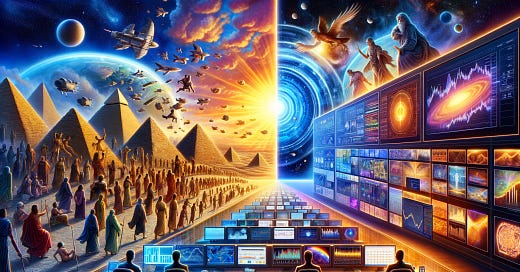



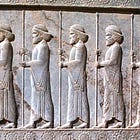
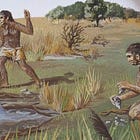

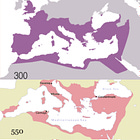
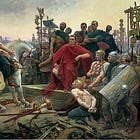
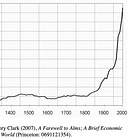

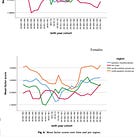
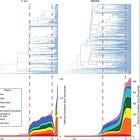
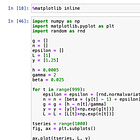


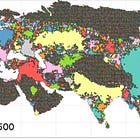




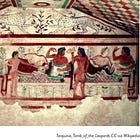


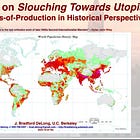



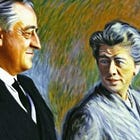

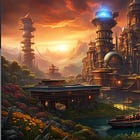

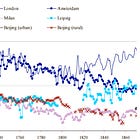
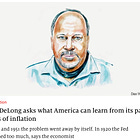

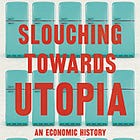

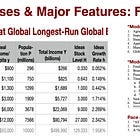



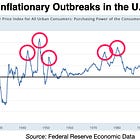
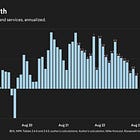
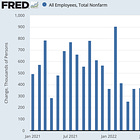
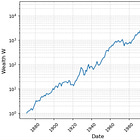
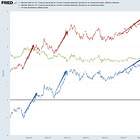
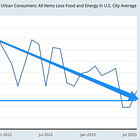
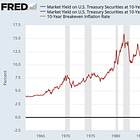
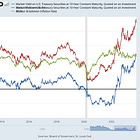

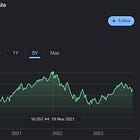
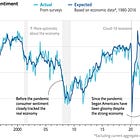





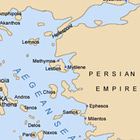







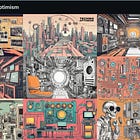

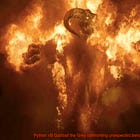





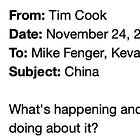



Books take years to publish, so discussions of interest rates and democracy will probably be, if not settled, at least less topical by then. If we are in a dictatorship, who knows what books can be sold?
If I may blend several topics, one that should survive current events is the history of challengers to hegemony. Something broader and deeper than the Thucydides Trap. Does moving towards democracy or autocracy make a difference? Manufacturing power, soft power, alliances, science, demographics, treatment of women, immigration, geography, asset bubbles and financing? Also key person risk and the difficulties off measuring economic and military prowess. Whatever matters, or people think matters, covered in a population of hegemon challengers who were successful, and that failed.
The framing is to evaluate China, and to a lesser extent India, without trying to be an expert in either China or India, and to make it applicable for the long run while providing interesting history along the way.
ps: from your description, I'd be interested in a biography of Hoover, but the only book in local library interpreted his life through fishing. Suggestions?